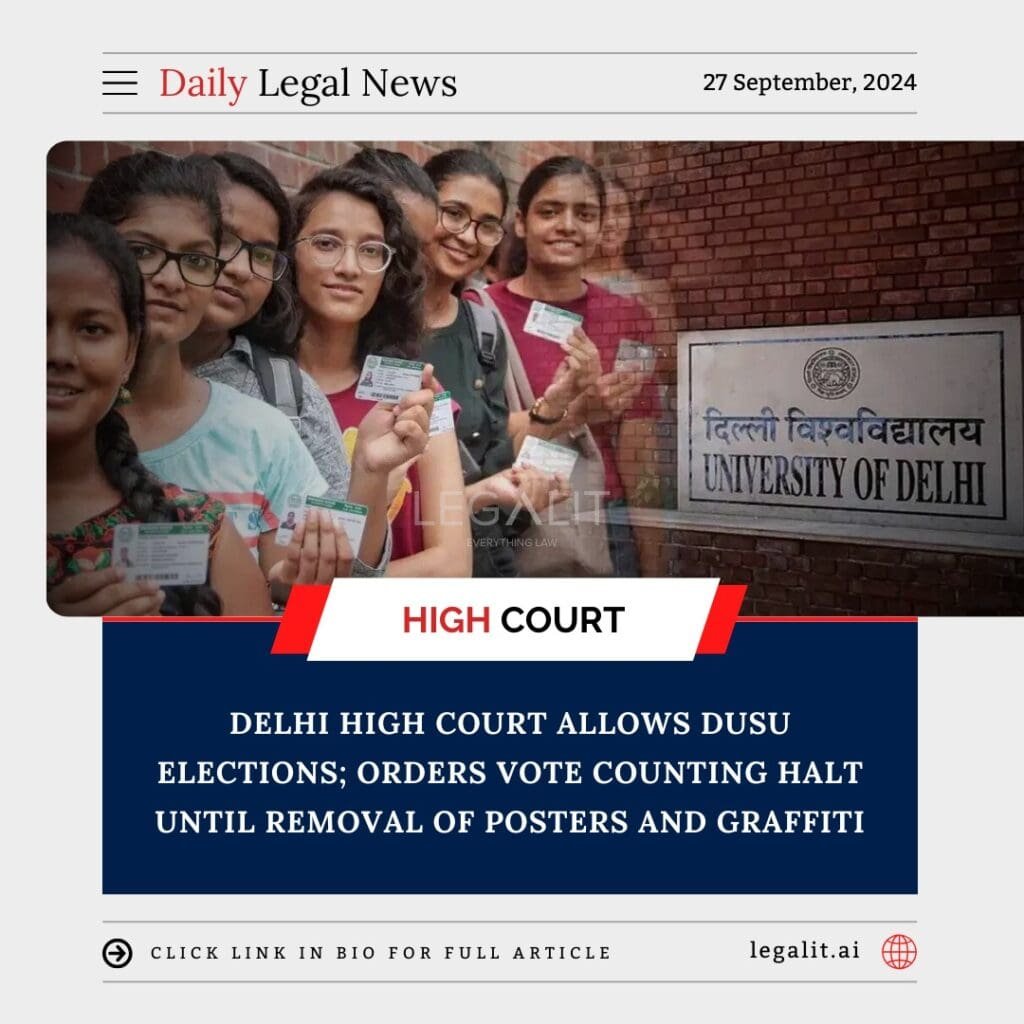
In a recent ruling, the Delhi High Court has permitted the Delhi University Students’ Union (DUSU) elections to proceed while imposing a crucial condition: the counting of votes must be halted until all posters and graffiti used for campaigning are removed from the university premises. This decision comes amid ongoing concerns about maintaining decorum and ensuring a fair electoral process in the university environment.
1. Context of the DUSU Elections
The DUSU elections are a significant event in the academic calendar of Delhi University, providing a platform for students to voice their opinions and influence university governance. However, the elections often see intense campaigning, leading to disputes over the methods employed by various student organizations.
In this instance, the presence of posters and graffiti across the campus had raised concerns about the potential for an unfair advantage to candidates whose campaign materials remained displayed during the voting process. The court’s intervention highlights the importance of a level playing field in student elections.
2. The Court’s Ruling
The Delhi High Court’s ruling allows the elections to continue, recognizing the importance of student representation. However, it simultaneously underscores the necessity for a clean and fair electoral environment by ordering that the counting of votes will not take place until the removal of all campaign materials, including posters and graffiti, is completed.
This decision aims to ensure that all candidates have an equal opportunity to present their platforms without the influence of prior campaign materials during the vote counting phase. It reflects the court’s commitment to maintaining the integrity of the electoral process within educational institutions.
3. Implications of the Decision
The court’s order has several implications for the DUSU elections:
- Fairness in the Electoral Process: By halting vote counting until the removal of campaign materials, the court aims to ensure that no candidate is unfairly influenced by lingering advertisements and slogans, promoting a more equitable environment for all participants.
- Responsibility of Candidates and Parties: The ruling places responsibility on candidates and their supporting organizations to adhere to the court’s directives, emphasizing the need for accountability in campaign practices. It serves as a reminder that adherence to electoral norms is paramount for the legitimacy of the election process.
- Potential Precedent: This ruling may set a precedent for future student elections in Delhi University and beyond, emphasizing the judiciary’s role in ensuring that student elections are conducted fairly and responsibly.
4. The Way Forward
As the DUSU elections unfold, the focus will now shift to the compliance with the court’s order regarding the removal of campaign materials. Election officials, along with student representatives, will need to work together to ensure a smooth process leading up to the counting of votes.
The outcome of the elections will be closely watched, not just by the students of Delhi University but also by other educational institutions facing similar challenges during their own electoral processes. The High Court’s ruling emphasizes the need for a balanced approach to student governance, ensuring that all voices are heard while upholding the principles of fairness and transparency.
5. Conclusion
The Delhi High Court’s decision to allow DUSU elections while mandating the removal of campaign materials before counting reflects a significant commitment to fair electoral practices within educational institutions. As the process continues, it will be essential for all stakeholders to adhere to the court’s guidelines to ensure a legitimate and representative outcome.